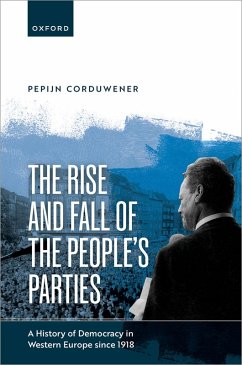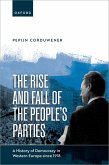This is an open access title available under the terms of a CC BY-NC-ND 4.0 International licence. It is free to read on Oxford Academic and offered as a free PDF download from OUP and selected open access locations. Across Europe, people are deeply concerned about the state of democracy. The Rise and Fall of the People's Parties shifts the attention away from ever-changing populist politicians that capture newspaper headlines to the centre-left and centre-right people's parties that used to buttress the democratic order over the past decades, but which are now in steep decline. Why does the crisis of these parties contribute so profoundly to today's crisis of democracy? And why were these parties so important for the stabilization and legitimation of democracy in the past century in the first place? By providing a long-term and transnational account of the history of democracy in modern Europe, The Rise and Fall of the People's Parties reveals the striking parallels between the history of democracy and the history of the people's parties since 1918. The first part of the book shows how the failure to turn traditional working-class and confessional mass parties into people's parties played a vital role in the collapse of democracy in the 1920s and 1930s. It also explores the attractiveness of the people's party ideal centred on moderation, compromise and openness to pioneering politicians in the mid-century. The second part of the book then traces the practical application and breakthrough of this ideal in the decades after World War II and shows how this contributed to the stabilization and legitimation of democracy in the postwar decades. In the final part of the book, Corduwener turns to the slow decline of the people's parties since the mid-1970s. It explores how their failure to represent volatile and polarized societies was reflected in their aim to turn into 'open' and 'flexible' parties focused primarily on providing governmental efficiency - and how this eventually turned against them by alienating their members and voters. In so doing, Corduwener offers an original and timely study of twentieth century democracy that transcends traditional party groupings, divisions between eras, and national boundaries. The book will be important reading for all historians of European democracy, as well as journalists, policymakers and practitioners interested in the current state of democracy in and outside the region today.
Dieser Download kann aus rechtlichen Gründen nur mit Rechnungsadresse in A, B, BG, CY, CZ, D, DK, EW, E, FIN, F, GR, HR, H, IRL, I, LT, L, LR, M, NL, PL, P, R, S, SLO, SK ausgeliefert werden.









